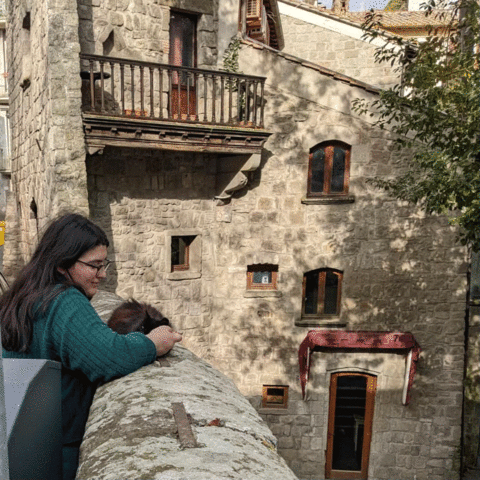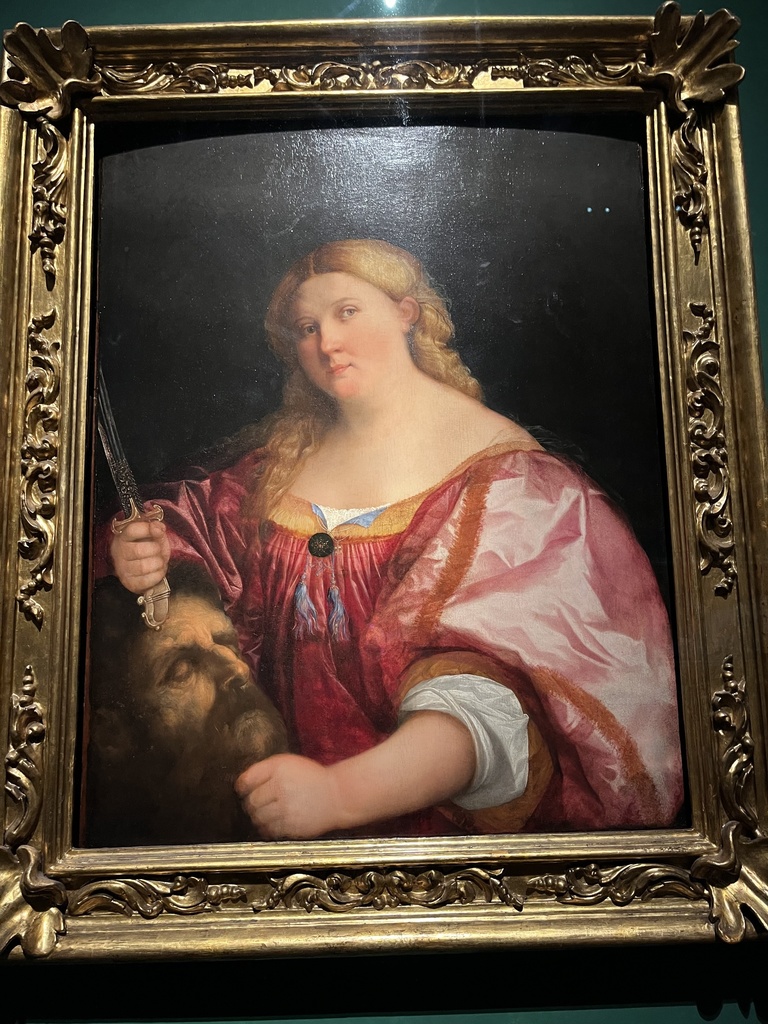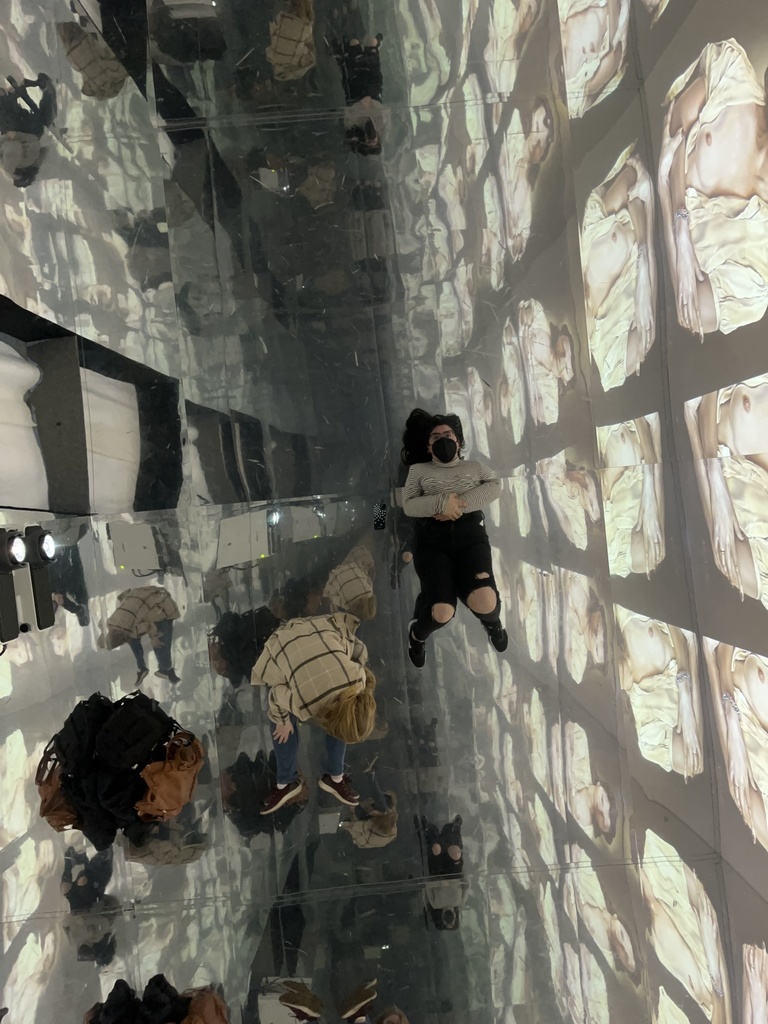
Finding community can be hard. Wow, what an opener. I probably sound like someone out of OnIowa, or, worse, someone in one of Iowa’s official Instagram posts. But, corny as it may sound, it’s the truth: finding community can be hard. But sometimes we need a little lack of community to find ourselves.
Studying abroad, more than anything, helped me realize the liminal spaces of my identity. I’m neurodivergent, luckily understanding social cues and expectations enough to not be targeted by neurotypicals, but still ADHD enough to annoy them, even if on “accident.” I’m asexual, aromantic, and genderqueer, all of which are queer identities that exist in blurry spaces. I’m kind of a wallflower of identities, if you will.
In my program in Italy, there were nine cis girls, one cis boy, and me, a genderqueer girl-but-not-girl. Among them was one neurodivergent person and one sapphic. Safe to say, we didn’t experience neurodivergence or queerness in the same way. This doesn’t mean we didn’t get along. There were times we talked about our identities or shared knowing looks when the straights or the neurotypicals did something, well, straight or neurotypical. But they weren’t my community.
"I was supposed to become almost fluent in Italian, or at least enough to impress my professor and my relatives. That didn’t really happen. But I learned a different kind of fluency, learned a way to understand myself."
I was both expecting this and wasn’t. Iowa provided me with an abundance of friends like me: enby, ace, neurodivergent. In ways, it may have shielded me a bit, given me a rose-colored outlook on what my study abroad peers might look like. Three weeks in and I felt blindsided by a sense of numbness I hadn’t felt in years. In hindsight, the anti-depressants I took with me were probably too low of a dose for a sudden change like living in a new country for four months, but that’s behind us now.
People will wax on and on about all the good parts of study abroad (of which there are many, my Instagram feed and two-hundred-page travel journal, filled front to back, can attest), but feeling like you’re not in a community, like you’re a little alone, is part of the experience.
The truth is that, sometimes, studying abroad felt like a party I wasn’t participating in. I didn’t know how to get out of this. At first, I tried to conform, to fit in more with the sapphic girl, who was more outgoing than I was, or the other neurodivergent kid, who had vastly different interests than me. I thought it might make me feel more like I had “community” with their identities. But it didn’t. It made me exhausted; it made me feel even more alone.
I wasn’t considering leaving Italy. I’d wanted to go abroad for years. But I’d never really decided what I’d do. Just getting to the country was my plan. Not backing out, deciding to get on the plane and study abroad was the plan. Then, I was there, and I was alone, and I didn’t know what to do.

Then I did something I never really thought to do when I was in Italy: I traveled. The incentive for this wasn’t my own; I can thank my extroverted ally of a roommate for getting me to go to Florence with her, then Perugia, then Milan, then Venice. My family doesn’t go on vacation much, and I’ve never been one to do things for myself, both of which my roommate learned quickly as she taught me the ropes. I think I may have shocked her a bit when I came up with my own plan for us to take a short trip to Florence again.
I did a lot in Italy. I visited 26 towns. Can you imagine? 26! Mind you I didn’t have a car, just public transportation. I took an eight-hour train ride to my aunt and uncle’s hometown, got wondrously lost in the ruins of Pompei by myself, spent three hours staring at neoclassical paintings in Milan until my roommate had to pull me away. There’s something about walking around a museum, about staring at paintings until the lines blurred, dissecting every scene and detail, noticing things I’d never have seen in a digital scan.
I hopped around ruins in Pompei like a little kid, peaked my head over broken walls to see old frescos, hummed to myself because no one was around to get annoyed at me for stimming. I went to the Uffizi—twice! And on my second visit, I tracked down all the paintings I could that depicted the tale of Judith just because I could.
I climbed the Duomo of Santa Maria del Fiore, and the Duomo di Milano, and a mountain in Viterbo that wasn’t actually Monte Cimini but that I tell people is Monte Cimini anyways because it was close enough. I did so much for myself. I hadn’t ever done that before. I’d always been so preoccupied with how my identity fit in with others, how I fit in with others. Where in queer culture do I fit? Can I still call myself Italian-American if I don’t have the language? Is it only the ADHD that annoys people, or is it also me?
I’d never given myself time to just be with myself. I’d never gotten to exist outside of interaction with people who either didn’t understand me, or who I couldn’t let understand me. Travel gave me that, even if it was only on days off from class.
And I can’t say I fell in love with traveling, but I do think I fell a bit in love with not trying to be a someone else for other people. I don’t know if this is necessarily considered finding yourself, like I said earlier. Study abroad was supposed to be something different for me. I was supposed to become almost fluent in Italian, or at least enough to impress my professor and my relatives. That didn’t really happen. But I learned a different kind of fluency, learned a way to understand myself.
I still think about sitting in the train car—in my memories, it’s always the same train—listening to an audiobook or music as the countryside rolls by me, pressing my head against the cool glass at night or watching the sun raise itself over the horizon in the early morning. It gave me a sense of peace I’d never before had. Instead of numb, I felt blissfully, blissfully still.
Carmela Furio (English and creative writing and Italian majors), a Diversity Ambassador Scholarship recipient, participated in the USAC Viterbo program in spring 2022.
LEARN HOW YOU CAN APPLY FOR A DIVERSITY AMBASSADOR SCHOLARSHIP
The Diversity Ambassador Scholarship program provides awards to study abroad for a summer, semester, or academic year. The scholarships are intended to support the diversification of students who study abroad. Upon completion of the study abroad program and return to UI, award recipients are asked to submit a photo and an open letter to prospective students or suggest an alternate means of sharing with prospective students.
Please note that the opinions and views expressed by diversity ambassadors are solely those of the students and do not reflect or represent the views of International Programs or the University of Iowa.
International Programs (IP) at the University of Iowa (UI) is committed to enriching the global experience of UI students, faculty, staff, and the general public by leading efforts to promote internationally oriented teaching, research, creative work, and community engagement. IP provides support for international students and scholars, administers scholarships and assistance for students who study, intern, or do research abroad, and provides funding opportunities and grant-writing assistance for faculty engaged in international research. IP shares their stories through various media, and by hosting multiple public engagement activities each year.


